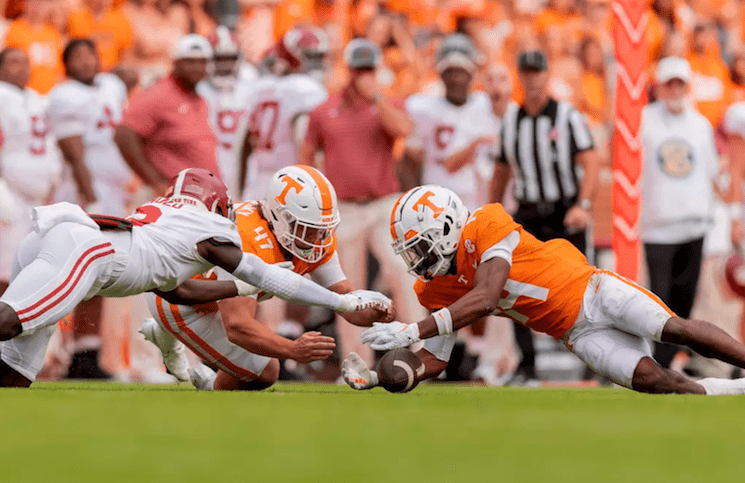Tennessee starting quarterback Joshua Dobbs received a large amount of criticism during 2015 for his inconsistency in the passing game. Nobody questioned Dobbs’ prowess in the running game, as he set a record for the most rushing yards by a Vols quarterback in a single season last year. But his ability to throw the ball varied from game to game, and he rarely connected with his receivers beyond intermediate passes.
But if the 2015 college football season is any indication, the Vols don’t need Dobbs and the passing game to take monumental leaps forward in 2016 in order to find success. They just need a slight improvement.
It’s expected that Tennessee’s defense will be the strength of the team in 2016. The Vols return eight starters on defense and hired Penn State defensive coordinator Bob Shoop to the same position, poising the 2016 Tennessee defense to be one of the best defenses in the SEC and possible the country.
Couple that with a running game that returns everyone from the group that had a historic season in 2015, and the Vols already look like a legitimate SEC Championship contender. Which means the Vols are also legitimate College Football Playoff contenders.
The only question mark that is keeping analysts and fans from completely buying in to the hype is Tennessee’s passing game.
The Vols averaged a mere 198.6 passing yards a game in 2015, coming in as the 92nd-ranked passing offense in the country. The team’s 17 passing touchdowns tied for 84th in the country, and their 7 yards per attempt came in at No. 74. Starting quarterback Josh Dobbs threw for more than 200 yards in a game only five times all season.
In short, the Vols passing game in 2015 was disappointing.
But luckily for the Vols, they don’t need Dobbs and the passing game to suddenly become an air raid type of offense and chuck it deep every other play. No, Tennessee can have massive amounts of success in 2016 by just taking small steps in the passing game.
Take a look at the season of college football that has just ended. Alabama won another National Championship, and they did so with a defense that controlled opposing offenses and a rushing attack that was dominant all season. What the Crimson Tide didn’t have, however, was a particularly dynamic passing game. In fact, of the four Playoff teams this year, Alabama had the lowest ranking passing attack, coming in as the No. 62 overall passing game with 227.1 yards a game.
Alabama proved that a steady defense and controlling run game can win championships. Essentially all of Alabama’s national champion teams have been wrought from that same formula.
The Vols are already following that mold.
Alabama’s 2015 passing game averaged just 28.5 more yards a game, .6 more yards an attempt, seven more touchdowns, and five more interceptions than Tennessee’s. Those are gaps the Vols can certainly close or even surpass in 2016 with just minimal improvement.
Alabama’s Jake Coker wasn’t confused with a Heisman caliber quarterback, but he did just enough to move the ball when needed and did a better job of taking care of the ball as the season progressed. Coker passed for 3,110 yards, 21 touchdowns, and 8 interceptions. Compare that to Dobbs’ 2,291 yards, 15 touchdowns, and 5 interceptions, and Coker’s numbers certainly seen attainable for Dobbs and the Vols offense.
The Vols already use Dobbs in much the same way Coker was used: as a game manager. Yes, Dobbs can do things on the ground that few other quarterbacks can do, which opens up a completely different avenue on offense for him. But as a passer, Dobbs is more limited and doesn’t have the greatest deep ball accuracy.
Alabama didn’t expect Coker to sling the ball around 40-50 times a game. And the Vols don’t want Dobbs to do that either. In fact, both Dobbs and Coker attempted 30 or more passes only four times each last season.
The one area that Coker’s performance far exceeded Dobbs’ was in completion percentage. Coker completed an impressive 66.9 percent of his passes while Dobbs only connected on 59.6 percent of his attempts. Dobbs’ consistency and downfield passing definitely need improvement, but even a two or three-point improvement on his completion percentage will result in a more consistent play-making ability.
Tennessee doesn’t need a potent passing attack in 2016 to win the SEC East and challenge for the SEC Championship. With their potentially elite defense and dominant running game, the Vols just need a slight improvement in the passing game to have a special season.





